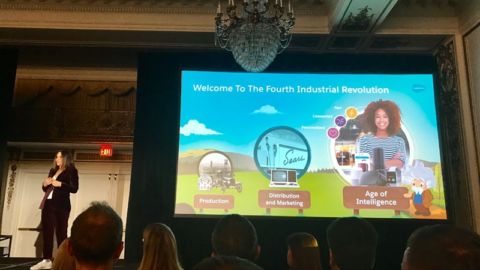Consumer demand for mobile devices continues to expand, with smartphone sales nearing 1.5 million units in 2016, according to BI Intelligence. With the addition of 500 million current and estimated tablet computers, more than two billion smart mobile devices will be in use within three years, predicted the mobility research firm.
This forecast indicates that the intensifying demand for smartphones is based more on computing power, web access and app functionality than for the ability to make phone calls, noted a report from Digital Clarity Group that investigated the shifting mobile landscape.
That report, titled Understanding The “Mobile Shift:” Obsession With The Mobile Channel Obscures The Shift To Ubiquitous Computing, highlights the massive and disruptive adoption of smart mobile devices, how mobility is initiating the era of ubiquitous computing, and what this all means for the mobile enterprise.
Advertisement
Unlike laptops ― which are displacing desktop PCs ― and cell phones, which gradually are replacing landlines, “mobile devices expand the opportunities for computer usage and media consumption,” according to the research document. “In short, the mobile shift is not about the move to mobile devices from fixed PCs, but the shift from fixed, restricted access to computing services to ubiquitous access.”
Mobile “initiates ubiquity,” which is the “true import and impact of the mobility shift,” the report indicated. The study defined “ubiquity” as not only moving seamlessly between different devices but also using several devices simultaneously. This ubiquity imposes the need to erase the distinctions between channels and modes of interaction.
Organizations seeking to offer transparently de-channeled customer experiences must keep these three goals in mind:
- Avoid confusing the need to accommodate diverse mobile devices and form factors with the crucial demand to satisfy mobility and always-on access, regardless of the device.
- Stop thinking in terms of channels, and start thinking in terms of task orientations ― and the relative value to the consumer (and thus to the organization) of easily accomplishing a given goal.
- Plan for software solutions, processes, vendor relationships and agency partnerships that enable immediate insights into changing demands and rapid, agile adjustments in digital services.
Click here to download a copy of the “Mobile Shift” report from Digital Clarity Group.














